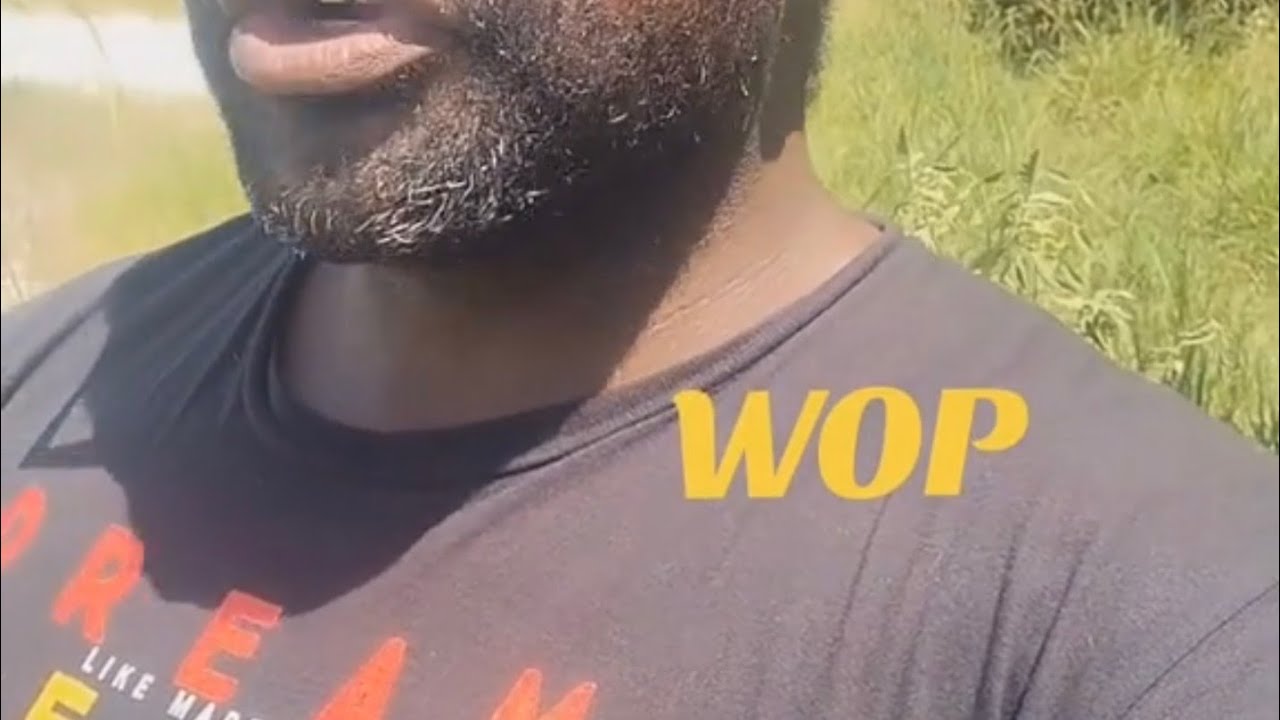
Wop Meaning: Unveiling the Offensive History & Responsible Usage
The term “wop” is a deeply offensive ethnic slur historically used to denigrate Italians and other people of Southern European descent. Understanding the wop meaning, its origins, and the profound harm it inflicts is crucial for fostering respectful communication and combating prejudice. This comprehensive guide will delve into the history of this derogatory term, its lasting impact, and the importance of using inclusive language. We aim to provide a resource that not only educates but also encourages empathy and responsible language choices.
The Derogatory Origins of “Wop”
The term “wop” emerged in the late 19th and early 20th centuries, during a period of significant Italian immigration to the United States. Its etymology is debated, but one common explanation traces it to the Italian word “guappo,” a Neapolitan dialect term for a swaggering or boastful person, sometimes associated with lower social classes. However, the term quickly shed any neutral connotations and became a tool of discrimination and prejudice.
Another proposed origin is an acronym for “Without Passport,” reflecting the perception that many Italian immigrants arrived in the United States without proper documentation. Regardless of its exact origins, “wop” became a widely used slur, employed to dehumanize and marginalize Italian immigrants. It was often associated with stereotypes of criminality, ignorance, and poverty.
The use of “wop” was particularly prevalent in contexts where Italian immigrants faced discrimination in employment, housing, and social interactions. It served as a constant reminder of their outsider status and fueled prejudice against them. The impact of this slur extended beyond mere name-calling; it contributed to systemic inequalities and limited opportunities for Italian immigrants and their descendants.
The Term’s Evolution and Usage
Over time, the use of “wop” has declined in mainstream discourse, but it has not entirely disappeared. It can still be encountered in older texts, historical accounts, and occasionally in contemporary contexts, often as a deliberate act of aggression or ignorance. The persistence of this term, even in limited contexts, underscores the importance of understanding its history and the harm it inflicts.
It is crucial to recognize that the term “wop” is not simply an outdated expression; it carries a heavy weight of historical prejudice and continues to be deeply offensive to many people of Italian descent. Using this term, regardless of intent, perpetuates harmful stereotypes and contributes to a climate of intolerance.
The Enduring Impact of Ethnic Slurs
Ethnic slurs, like “wop,” have a profound and lasting impact on individuals and communities. They not only inflict immediate emotional distress but also contribute to a broader climate of prejudice and discrimination. The use of such terms can reinforce negative stereotypes, limit opportunities, and undermine the sense of belonging for targeted groups.
The psychological effects of being subjected to ethnic slurs can be significant. Victims may experience feelings of shame, anger, anxiety, and depression. They may also internalize negative stereotypes and develop a sense of self-doubt. The cumulative effect of repeated exposure to such slurs can be particularly damaging, leading to long-term psychological trauma.
Beyond the individual level, ethnic slurs can also have a detrimental impact on communities. They can create divisions, erode trust, and undermine social cohesion. The use of such terms can also normalize prejudice and make it more difficult to challenge discrimination. Therefore, it is essential to actively combat the use of ethnic slurs and promote inclusive language that respects the dignity of all individuals.
Examples of Harmful Effects
* **Reduced Self-Esteem:** Constant exposure to negative stereotypes and slurs can erode an individual’s sense of self-worth.
* **Increased Anxiety and Depression:** The stress of facing discrimination can lead to mental health problems.
* **Limited Opportunities:** Prejudice can create barriers to education, employment, and housing.
* **Erosion of Trust:** Slurs can damage relationships and undermine trust within communities.
The Importance of Inclusive Language
Inclusive language is language that is respectful of and sensitive to the diversity of individuals and groups. It avoids the use of terms that may be offensive, discriminatory, or exclusionary. Promoting inclusive language is essential for creating a welcoming and equitable environment for all.
Using inclusive language requires awareness, empathy, and a willingness to learn. It involves being mindful of the potential impact of our words and choosing terms that are respectful and accurate. It also means actively challenging the use of offensive language and promoting alternative expressions that affirm the dignity of all individuals.
One of the key principles of inclusive language is to focus on the individual rather than the group. Avoid making generalizations or assumptions based on ethnicity, race, gender, or other characteristics. Instead, treat each person as an individual with unique experiences and perspectives.
Strategies for Using Inclusive Language
* **Be Aware:** Educate yourself about the history and impact of offensive terms.
* **Be Respectful:** Choose words that are respectful and sensitive to the diversity of individuals and groups.
* **Be Accurate:** Use language that accurately reflects the experiences and perspectives of others.
* **Be Inclusive:** Avoid terms that may be exclusionary or discriminatory.
* **Be Willing to Learn:** Be open to feedback and willing to adjust your language as needed.
“Cultural Appropriation” in the Context of “Wop”
While “cultural appropriation” isn’t directly tied to the *origin* of the slur, it’s relevant in how the term and associated stereotypes are *perpetuated* or used, sometimes unknowingly, in modern contexts. The use of Italian American culture or stereotypes without acknowledging the historical oppression associated with terms like “wop” can be seen as a form of cultural appropriation. It’s crucial to be mindful of the historical baggage and potential harm when engaging with any culture, especially one that has been subject to discrimination.
For example, using exaggerated Italian accents or mannerisms for comedic effect, without understanding the history of how these stereotypes were used to marginalize Italian Americans, can be insensitive and perpetuate harmful tropes. Understanding the context and showing respect are key to avoiding cultural appropriation.
Alternatives to Using Offensive Language
There are always alternatives to using offensive language. When referring to people of Italian descent, simply use the terms “Italian,” “Italian American,” or “person of Italian heritage.” These terms are respectful, accurate, and inclusive. Avoid using any terms that may be offensive or discriminatory, regardless of intent.
If you are unsure about the appropriate term to use, it is always best to err on the side of caution and ask the individual how they prefer to be identified. This demonstrates respect and a willingness to learn.
In addition to avoiding offensive terms, it is also important to challenge the use of such language by others. When you hear someone using an ethnic slur, speak up and explain why the term is offensive. By challenging prejudice and promoting inclusive language, we can create a more welcoming and equitable environment for all.
Examples of Respectful Language
* Instead of “wop,” use “Italian American.”
* Instead of making generalizations about Italians, focus on the individual.
* Instead of using stereotypes, learn about Italian culture from authentic sources.
The Role of Education in Combating Prejudice
Education plays a critical role in combating prejudice and promoting understanding. By learning about the history and impact of ethnic slurs, we can develop greater empathy and sensitivity towards others. Education can also help us to challenge negative stereotypes and promote inclusive language.
Schools, community organizations, and individuals all have a role to play in promoting education about prejudice. Schools can incorporate lessons about the history of discrimination into their curriculum. Community organizations can host workshops and events that promote understanding and dialogue. Individuals can educate themselves and others about the impact of prejudice and the importance of inclusive language.
By working together, we can create a more informed and inclusive society where all individuals are treated with respect and dignity.
Educational Resources
* Museums and historical societies
* Libraries and archives
* Documentaries and films
* Books and articles
* Online resources
Q&A: Addressing Common Questions About “Wop”
Here are some frequently asked questions about the term “wop” and its usage:
1. **Is it ever okay to use the word “wop” in a historical context?**
Even in a historical context, using the word “wop” should be avoided unless absolutely necessary for scholarly or analytical purposes. When it is used, it should be done with extreme caution and sensitivity, always acknowledging its offensive nature. Contextualizing the term’s historical usage does not excuse its inherent harm.
2. **If someone doesn’t know the wop meaning, are they still responsible for the harm it causes?**
Yes. Ignorance of the term’s meaning does not absolve someone of responsibility for the harm it causes. Upon learning of its offensive nature, it’s crucial to cease using the term and apologize for any offense caused.
3. **What should I do if I hear someone using the word “wop”?**
If you hear someone using the word “wop,” you should speak up and explain why the term is offensive. You can explain its history and the harm it inflicts on people of Italian descent. If you are not comfortable speaking up directly, you can report the incident to a supervisor or other authority figure.
4. **How can I learn more about the history of discrimination against Italian Americans?**
There are many resources available to learn more about the history of discrimination against Italian Americans. You can visit museums and historical societies, read books and articles, watch documentaries, and explore online resources. The Italian American Museum in New York City is a great starting point.
5. **Is the term “guido” also offensive?**
Yes, the term “guido” can also be offensive, particularly when used to stereotype Italian Americans. While its origins are different from “wop,” it has often been used in a derogatory way to portray Italian Americans as uncultured or unsophisticated.
6. **Why is it important to avoid using ethnic slurs, even if I don’t mean to cause harm?**
Ethnic slurs carry a weight of historical prejudice and can inflict significant emotional distress, regardless of your intent. Using such terms perpetuates harmful stereotypes and contributes to a climate of intolerance.
7. **What’s the difference between using a slur and simply making a joke about someone’s ethnicity?**
While jokes about ethnicity can also be harmful, slurs are inherently derogatory and intended to demean. Even seemingly harmless jokes can reinforce stereotypes and contribute to prejudice.
8. **How can I be a better ally to the Italian American community?**
You can be a better ally by educating yourself about the history of discrimination against Italian Americans, challenging the use of offensive language, and supporting organizations that promote Italian American culture and heritage.
9. **Are there any circumstances where using the word “wop” might be acceptable?**
Outside of academic or historical analysis where the term is being dissected and its harmful context explicitly addressed, there are virtually no acceptable circumstances for using the word “wop”. Its potential to cause offense far outweighs any possible justification.
10. **What are some examples of phrases that are more appropriate to use instead of the word “wop”?**
Appropriate phrases include: “Italian American person”, “person of Italian descent”, or simply referring to someone as “Italian”. Using respectful and accurate language is always the best approach.
Conclusion: Choosing Respect and Understanding
Understanding the wop meaning is not just about knowing the definition of a word; it’s about recognizing the pain and prejudice it represents. By choosing inclusive language, challenging discrimination, and educating ourselves and others, we can contribute to a more respectful and equitable society. The power of language is immense, and we have a responsibility to use it wisely and compassionately. Let us commit to fostering a world where all individuals are treated with dignity and respect, regardless of their ethnicity or background.
We encourage you to share your thoughts and experiences with offensive language in the comments below. Let’s continue this important conversation and work together to build a more inclusive future. Consider exploring resources from organizations dedicated to combating prejudice and promoting understanding between cultures.

